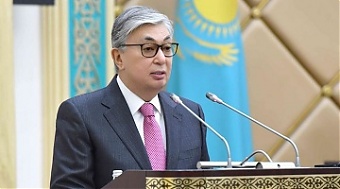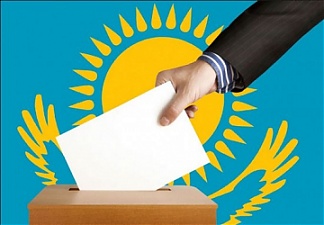Baltic States – CIS, EU – CIS, Kazakhstan
International Internet Magazine. Baltic States news & analytics
Wednesday, 24.04.2024, 18:21
The results of special presidential elections held on June 9 have been summed up in Kazakhstan
 Print version
Print version |
|---|
| Press photo. |
The preliminary results of the special presidential
elections in Kazakhstan came as no surprise even without the participation of Nursultan
Nazarbayev. The victory of Nazarbayev’s successor, the career diplomat Kassym-Jomart
Tokayev, was expected. Tokayev promised to continue on the course of his
predecessor, whose rating has always been consistently high among compatriots. Most
of Kazakhstanis voted for stability and politics as expected, which led the
country to be one of the most successful not only in the Central Asia region,
but also in the entire post-Soviet territory.
But despite the predictable outcome of the elections, it
cannot be said that they were deprived of political competition. There are the
following three facts as an argument:
1) the maximum number of candidates in the history took part
in the presidential elections;
2) a woman took part in the presidential elections in
Kazakhstan for the first time;
3) election-year debates were held as a part of the
electoral campaign for the first time.
Speaking about the candidates, it is worth noting that this year the list by its political staff was the most diverse in the history of Kazakhstan. It represented leftists, nationalists, liberals and centrists. A wide range of candidates certainly increased the intrigue in the electoral race and gave voters the opportunity to choose one from a wider range of political movements and their representatives.
Observers also noted the unprecedented diversity in these elections. In general, the representatives of international organizations and foreign missions from different countries with a priori critical eye were surprisingly positive and unanimous in their assessments of the electoral race and the voting process: the elections in Kazakhstan were held under competitive conditions without significant violations and with high civic engagement. Some polling stations even had long queues. As a result, the voter turnout was more than 77% in the country.
 |
|---|
| Press photo. |
The turnout should be discussed separately. Its rather high
level, especially against the background of a general trend of declining the voter
turnout in Western democracies, indicates a soft politicization of Kazakhstan’s
society. That is today, the citizens of the Republic more than ever understand
that their voice is important and realize that it is they who determine the
future of the country.
The increased civic engagement of Kazakhstanis on the voting
day was also expressed, strange though it might sound, in demonstrations that
took place in the cities of Nur-Sultan and Almaty. Unfortunately, the
demonstrators did not file applications for rallies, and therefore the
authorities had to involve the police to ensure public order.
Demonstrations, especially on the Election Day, are a common
case of any democratic country, indicating that the electoral cycle is carried
out in a healthy competitive environment. It's another matter that Kazakhstan
has not yet developed a civil culture – to coordinate such events with the
authorities so that they do not constitute a threat to the safety of other
citizens and do not create a convenient background for provocateurs of various
kinds. But in general, the very idea of public demonstrations indicates the
development of civil society in Kazakhstan, as well as the growing
responsibility of citizens for the fate of their country. And this is
undoubtedly a positive sign.
Returning to the elections, it may safely be said that the
electoral campaign and all its components have become a symbol of the evolution
of democratic processes in Kazakhstan. The growth of political competition that
has become an important attribute of the presidential elections will certainly
have a positive impact on the upcoming parliamentary elections in Kazakhstan in
2021. At a minimum, the country should expect an expansion of the party field,
an increase in the level of pluralism and a further increase in political
diversity.
The election of the President Kassym-Jomart Tokayev will finish
the process of power transit in Kazakhstan and will establish a tradition of
democratic change of leaders not only specifically in this Republic but also,
perhaps, in the entire Central Asia region, for which this practice had no
precedent before.








 «The Baltic Course» Is Sold and Stays in Business!
«The Baltic Course» Is Sold and Stays in Business!

